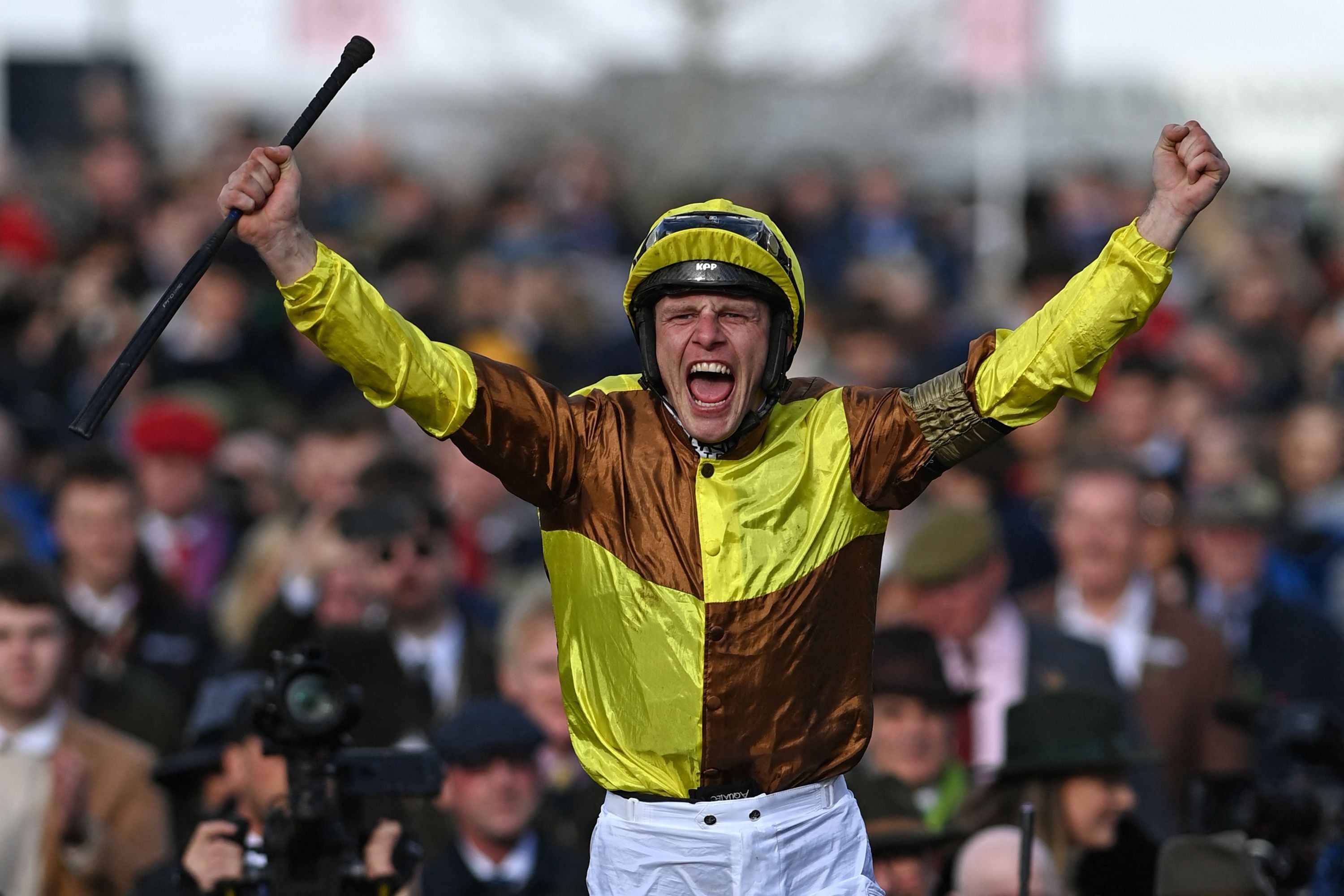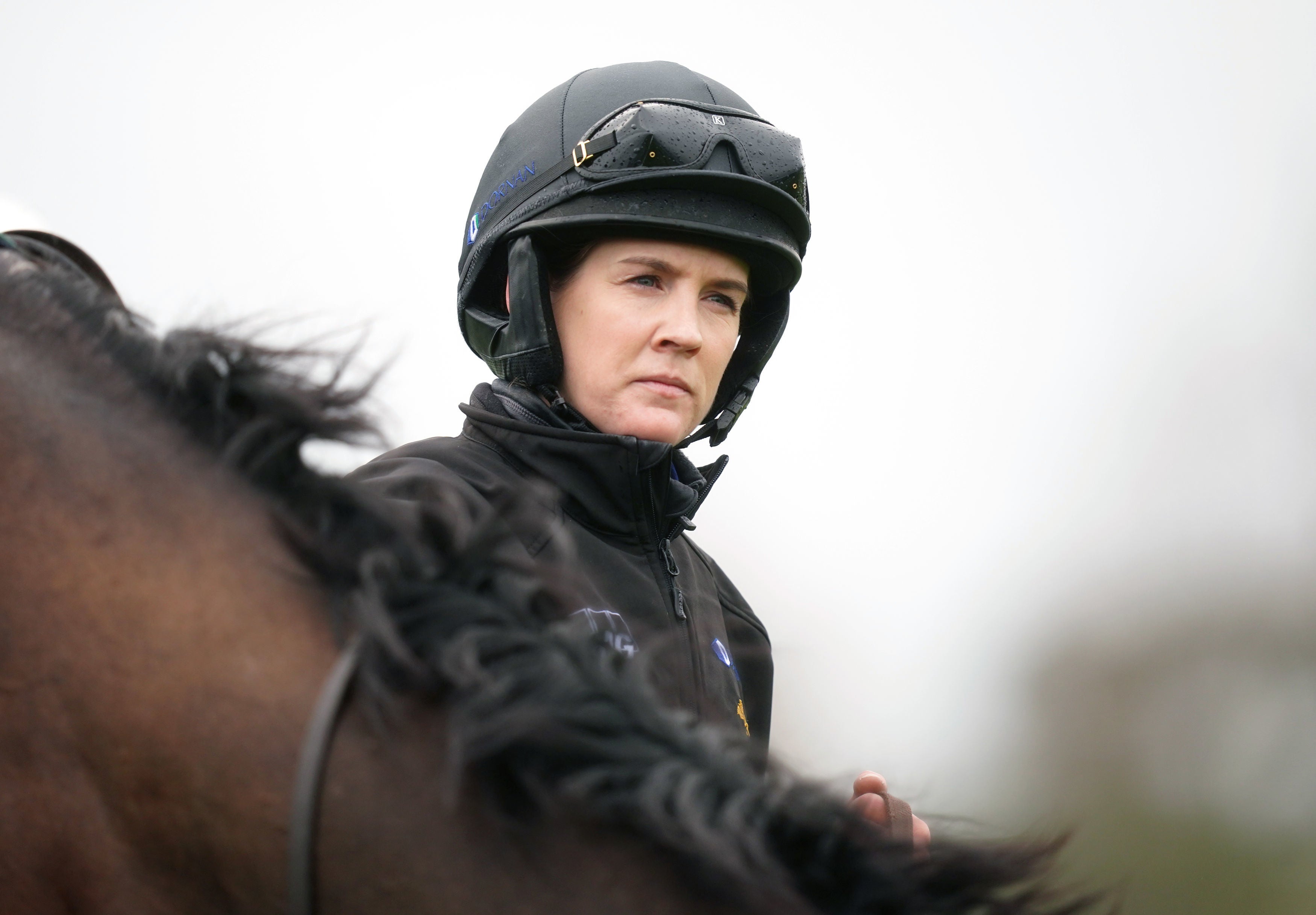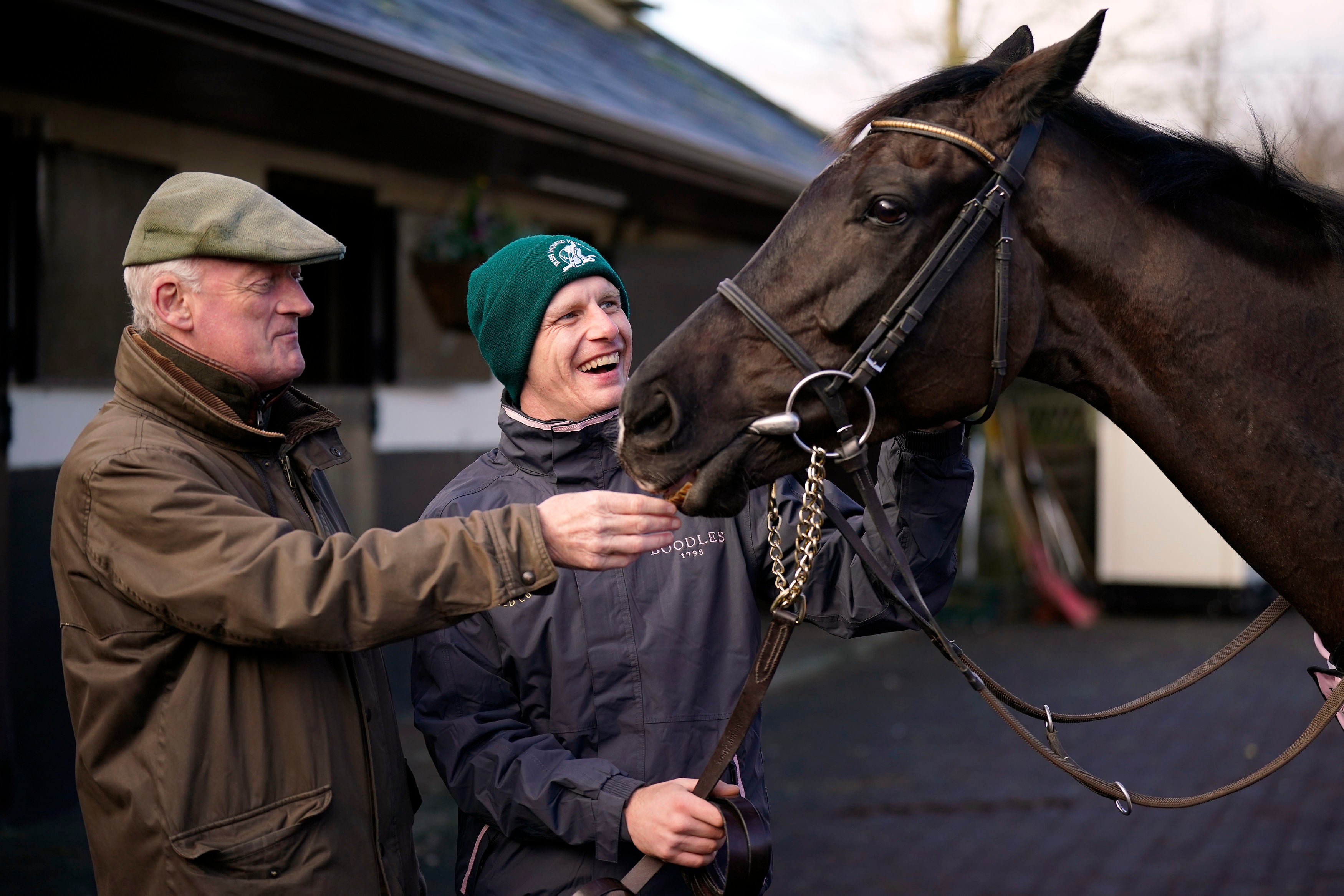How the Cheltenham Festival provides the finest climax to the jump racing season
Over four days of intense racing, jockeys, trainers, and owners compete in the greatest test against the best

Your support helps us to tell the story
From reproductive rights to climate change to Big Tech, The Independent is on the ground when the story is developing. Whether it's investigating the financials of Elon Musk's pro-Trump PAC or producing our latest documentary, 'The A Word', which shines a light on the American women fighting for reproductive rights, we know how important it is to parse out the facts from the messaging.
At such a critical moment in US history, we need reporters on the ground. Your donation allows us to keep sending journalists to speak to both sides of the story.
The Independent is trusted by Americans across the entire political spectrum. And unlike many other quality news outlets, we choose not to lock Americans out of our reporting and analysis with paywalls. We believe quality journalism should be available to everyone, paid for by those who can afford it.
Your support makes all the difference.Every sport has its peak. That one test of endurance, ability, skill, and luck. For professional footballers and rugby stars it would be the World Cup, England cricketers may point to the Ashes, for National Hunt jockeys? That pinnacle is the Cheltenham Festival.
Four days of demanding racing, against the best horses and riders, in front of a bumper crowd with prestige, glory, and prize money all on the line.
At Cheltenham there’s a champion race each day with Tuesday hosting the Champion Hurdle, Wednesday the Queen Mother Champion Chase, Thursday the Paddy Power Stayers’ Hurdle and Friday culminating with the 100th anniversary of the Cheltenham Gold Cup.
Victory in any of these ensures horse and rider get their names in the history books. Winning the Gold Cup puts them on the verge of legendary status.

“Cheltenham was how I judged my season,” said former jockey Ruby Walsh in an interview with The Independent.
Walsh, the third most prolific winner in British and Irish jump racing history, twice won the Cheltenham Gold Cup, in a career spanning over 20 years, and was the leading jockey at the Cheltenham Festival 11 times.
“A good week or a bad week at Cheltenham, it is where you are expected to deliver,” He added, “It’s where the biggest races are, it’s where the most attention is, it’s where jockeys feel like Premier League footballers.
“You’re performing in front of 70,000 people, that doesn’t happen very often in horse racing, a run-of-the-mill meeting could only have 2,000 people, so it is the biggest event where all the eyes are on you.
“To be part of that was amazing. I didn’t realise until I went to Cheltenham in 1995 as a spectator just how big the Gold Cup was, how different the atmosphere was, how different the crowd was compared to every other race.”

And that’s the thing. The Gold Cup may be the biggest draw but unlike the Grand National, where the meeting is built around one race, the Cheltenham Festival is a cavalcade of testing races with no pause nor lull over four days.
Jockey Paul Townend will hope to repeat his success from 2023 where, with six race wins, he was the festival’s leading jockey and winner of the Gold Cup thanks to a formidable ride from Galopin des Champs. His challengers this year are led by 2022 Gold Cup winner Rachael Blackmore, 2015 Gold Cup winner Nico de Boinville, 2023 Turners Novices’ Chase winner Harry Cobden, and 24-year-old Irish jockey Jack Kennedy, who missed last year’s meeting after breaking his leg.
However, jockeys aren’t the only people striving for victory, as trainers such as Ireland’s Willie Mullins and Gordon Elliott go toe-to-toe against the likes of Britain’s Paul Nicholls and Nicky Henderson.
Success here is measured in two ways: the total amount of races won by a specific trainer, or if a trainer’s horse is victorious in the champion races. The former is an incredible achievement and points to a trainer’s longevity and ability to bring the best out of each horse. In that category, there is one clear standout.
Willie Mullins could finish the week netting a landmark 100th winner at the Cheltenham Festival. He currently sits on 94 winners and has been the leading trainer at the festival for nine of the last 12 years. With Galopin de Champs, State Man, Lossiemouth, Ballyburn and Fact to File – to name just a few – coming from his stable, the prolific Irishman looks set to continue his Cheltenham Festival dominance.

Yet, for all their plans, trainers and jockeys must also be adaptable. The weather plays a huge role in any race meeting but is keenly observed ahead of Cheltenham where the stakes are higher. The going has eased to soft (from good to soft, soft in places) ahead of Tuesday’s opening day but there is more rain expected over the week. Four of the previous five Cheltenham Festivals have started with soft ground, so that at least is expected.
These factors also play into a jovial British versus Irish rivalry that unfurls over the festival. Jibes, finger-pointing and national pride are all part of the fun, and the expected 250,000 spectators will revel in the delights of this top-class racecourse.
The Cheltenham Festival is a complete celebration of jump racing. It has the biggest names, the best horses, and the grandest stage. Every year the build-up bubbles with anticipation, excitement and class, and when the gun goes off, the gates open, and the sound of hooves hitting the turf can be heard, the real tests begin.
This year’s festival will be no different.
More information about the Cheltenham Festival can be found at thejockeyclub.co.uk.
Join our commenting forum
Join thought-provoking conversations, follow other Independent readers and see their replies
Comments